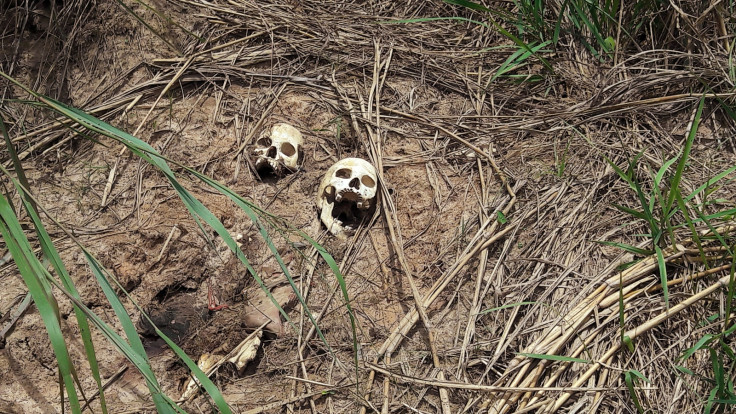UN discovers another 17 mass graves in central DRC's Kasai region
Total of 40 mass graves now found in area ravaged by clashes between Kamuina Nsapu militia and army.

UN investigators have discovered 17 more mass graves in the Democratic Republic of Congo (DRC)'s restive Kasai region, bringing the total of mass graves documented to 40 in an area where the Congolese army has clashed with local militants for the past eight months.
The Kasai Central province, in the heart of the DRC, has been plagued by violence between Congolese security forces and a local militia, Kamuina Nsapu, since August 2016.
While Kamuina Nsapu militiamen are accused of attacking state institutions and symbols, the UN peacekeeping mission to DRC (Monusco) last month warned of the disproportionate use of strength by the security and defence forces and the targeting of civilians, including women and children.
In a statement, the UN alleged the sites were dug by Congolese soldiers after fighting with the Kamuina Nsapu militia in late March.
"At least 74 people, including 30 children, were reported to have been killed by soldiers as a result of these clashes," the statement said.
Victims buried in the mass graves are reported to have been killed between June 2016 and March this year.
UN High Commissioner for Human Rights Zeid Ra'ad al-Hussein urged the government in Kinshasa to take "meaningful steps, which to date have been lacking, to ensure that there is a prompt, transparent, and independent investigation to establish the facts and circumstances of alleged human rights violations and abuses perpetrated by all parties, and other abuses of justice".
More than 400 people have died in fighting in Kasai Central since last August, when Congolese forces killed the militia's regional chief, prompting fighters to avenge his death.
The government, which is yet to comment on the latest discovery, has previously denied that soldiers have used disproportionate force against the Kamuina Nsapu, claiming the militia had dug the graves themselves.
The discovery comes after the release of video footage that appears to show elements of the armed forces "summarily executing civilians, including women and children", believed to be Kamuina Nsapu members. The authorities confirmed seven military have been arrested on suspicion of committing crimes against humanity.
The Kamuina Nsapu rebellion has become the most serious threat currently facing President Joseph Kabila, whose decision to stay in power after his mandate expired in December last year may have been an incentive for armed groups to capitalise on the prevailing political uncertainty to cause widespread violence and instability in an already fragile country.
© Copyright IBTimes 2024. All rights reserved.






